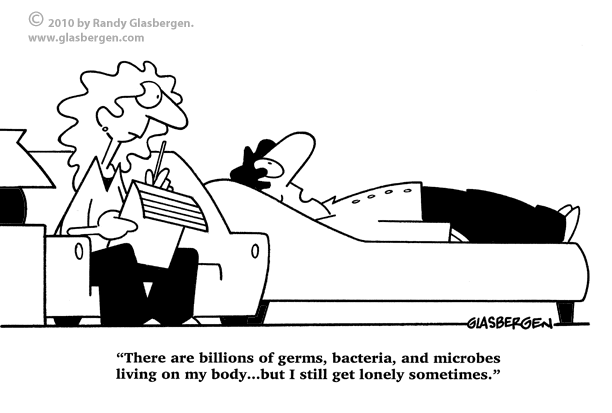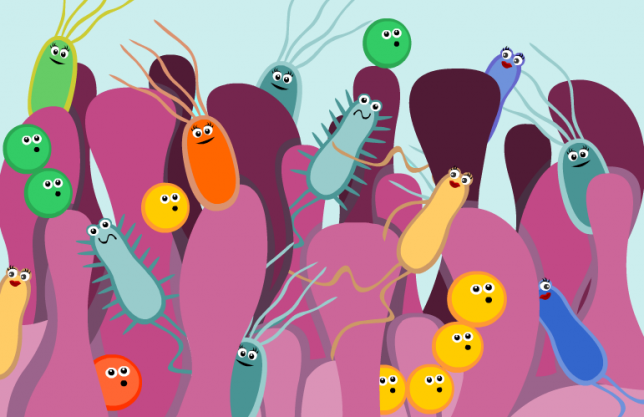One of my Italian blog readers sent me this link today: http://goo.gl/AEwRXo
I realize the article is in Italian, but hey, you’re in luck 😉 : you can read the full study, on which the Italian article is based, in English…at this link: http://goo.gl/9U8NoN
In any case, I’m going to give you a brief summary (based only on the article. I need more time to read/go through the full study). Here goes.
Researchers at the Ospedale di San Raffaele in Milan have discovered that a particular type of gut bacteria, called Prevotella heparinolytica, plays a big role in the proliferation of some of the inflammatory lymphocytes involved in the progression from asymptomatic to active myeloma.
Here’s what happens, in a nutshell. First, the pesky Prevotella bacterium activates the above-mentioned pesky lymphocytes. The lymphocytes then wander over to the bone marrow where they help plasma cells proliferate. They do so by releasing an inflammatory molecule called IL-17.
Arianna Brevi, one of the main researchers, points out that IL-17 could become a predictive tool, since it can actually be measured in the bone marrow of asymptomatic patients. In other words, it might be able to show which patients are more at risk of developing active myeloma.
Testing their findings on lab mice, the researchers were able to block IL-17 and other inflammatory molecules involved in the progression to active myeloma. Result: they SLOWED DOWN progression to active myeloma. Incidentally, they used anti-inflammatory drugs that are already on the market.
Aha!
That got me to wondering if curcumin’s inhibition of IL-17 is the reason, the main reason, why I’ve remained “inactive” for so many years, as have so many of you, too!
Well, well, a VERY exciting finding today!!!
(More research needed, of course…)
P.S. Finally, I just wanted to mention that I’m FINE and have been doing FINE for a while, now. No time for the blog, though. I’ve been busy with life…tons of stuff to do, blablabla. Thanks for your notes of encouragement…much appreciated! 🙂

